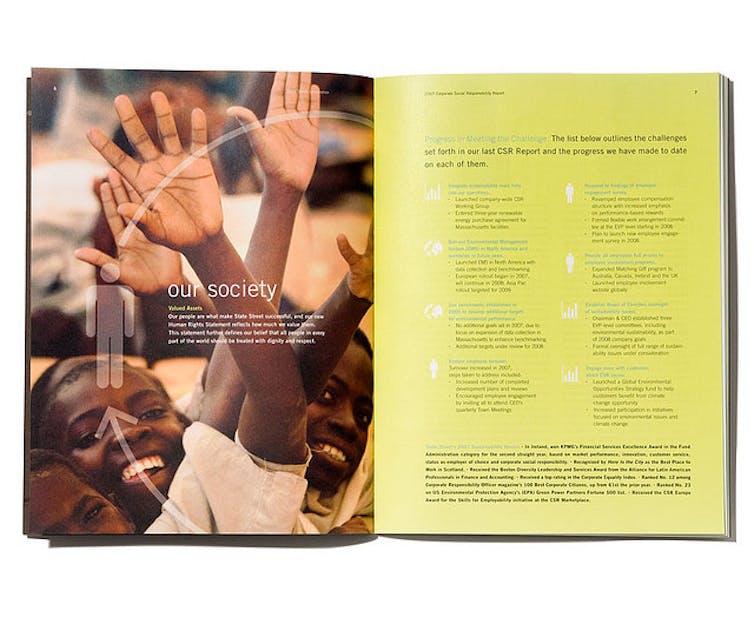The Volkswagen emissions scandal may have fatally undermined the credibility of claims that corporations care about being benign and useful participants in society. When a company can top the list of car firms in the Dow Jones Sustainability Index one week and then be caught using sophisticated software to avoid compliance with environmental regulation the next, we have to question if the concept of corporate social responsibility (CSR) has any meaning at all.
The VW scandal follows close on the heels of the publication of Lord Browne’s book, Connect. The former CEO of BP now questions the worth of CSR, saying it has become a prop that companies can use to put people’s legitimate concerns “into a side pocket”. The whole idea of CSR “should be dead” he concluded in a recent BBC interview.
So, does the VW scandal prove Lord Browne right? Should we dismantle the myriad of programmes that have been implemented since the 1990s to encourage firms to improve their environmental and social practices, and admit that CSR is a failed experiment?
Accountability
The results of our research project, which examined how transnational corporations have engaged with CSR over the last 20 years, suggest that CSR, for all its very real weaknesses, might just be worth saving, and certainly worth improving.
By analysing company CSR reports from the 1990s to the present, we found that firms have become more transparent about their environmental, labour and human rights practices and impacts. Companies are also more likely than in the past to disclose measurable future goals in these areas and have their reports verified by independent auditors.

These improvements in transparency and accountability are uneven; they vary across companies, countries and issue areas. Reporting on environmental sustainability is more advanced than reporting on labour and human rights. Still, this evidence suggests that large companies are increasingly engaging with the notions of best practice that have been promoted by the wider CSR movement and prominent codes of practice. These findings reinforce periodic surveys by KPMG that show over 90% of the largest transnational corporations now publish a CSR report and an increasing number apply the UN-endorsed Global Reporting Intiative guidelines to structure these disclosures.
Action
Reports are one thing, of course, real world behaviour is another. So does positive progress in the former feed through to the latter? Are companies actually improving how they manage their environmental and social impacts? If the VW scandal shows how far companies’ CSR rhetoric can deviate from practice, it also shows how corporate misconduct can defy easy solutions.
Better government regulation is clearly part of the answer, but doesn’t cover all the bases. VW, after all, was caught violating legally binding, not just voluntary, commitments. The difficulty of working out how viable a company’s performance data might be, applies to government as well as to voluntary regulation.
The VW scandal also highlights some of the often unrecognised strengths of the CSR movement. First, the dramatic fall of VW’s share prices over the past few weeks sends a clear message to corporate leaders about the dangers of lying about their green and social credentials. Critics of corporate social responsibility rightly worry about the undeserved reputational gains that companies can accrue through “green-washing”. BP faced sharp criticism for running a campaign in the early 2000s that sought to rebrand the company as “Beyond Petroleum” while still investing heavily in oil.
But these critics often fail to consider the negative consequences that a breach in this false trust can have. Those who live by fraudulent CSR credentials can also be severely undermined by them.
It is also worth noting that the scandal was first uncovered by a nonprofit organisation, the International Council on Clean Transportation (ICCT), which conducts research to improve the environmental performance of the transport sector. The ICCT is one of many NGOs that exist in part thanks to the rise of the CSR movement since the 1990s. Such non-state organisations check whether companies meet their stated environmental and social commitments. The fact that regulators in Europe ignored previous warnings about the emissions from VW diesel models emphasises the importance of greater corporate transparency and NGO monitoring.
Building a new CSR
Ultimately, though, the VW scandal highlights that both government regulation and voluntary CSR programmes will be ineffective if corporate managers do not foster shared assumptions about ethical conduct. Although it is important to keep companies honest by monitoring their behaviour, it is not possible for governments or NGOs to oversee the actions of transnational corporations at all times. To a certain extent, we have to trust that most companies have instilled an ethos that encourages their employees to comply with the law and wider social expectations. CSR is one tool – along with better regulation and protection of whistle-blowers – that can help build such an ethos.
The whole idea of corporate social responsibility needs to be improved, not abandoned. In particular, there are three things that policymakers and civil society can do to make CSR more effective.
First, do away with the unhelpful distinction between binding and voluntary corporate regulation. The future lies in better co-regulation. For example, regulators in the UK and the EU recently adopted policies that increase the information companies have to disclose about their environmental, labour and human rights practices in their annual financial reports. This information can help NGOs and investors better monitor CSR performance and properly reward improvement.
Next, we should strengthen NGOs’ ability to hold transnational corporations to account. NGOs can help uncover corporate malfeasance and use carrots to improve company behaviour through collaborative projects and CSR certification. The scope and credibility of these efforts depend on sufficient resources.
And lastly, governments should send corporations consistent messages about their responsibilities. It has been widely reported that governments in several countries turn a blind eye to the fact that car manufacturers frequently fudge the laboratory tests on which their published fuel efficiency standards are based. It seems likely that this lax regulatory environment contributed to an atmosphere in which VW’s malfeasance was seen as more acceptable.
Such reforms could strengthen the CSR movement in the future. It is an experiment whose outcomes are far from guaranteed, but one that we think is worth continuing.

